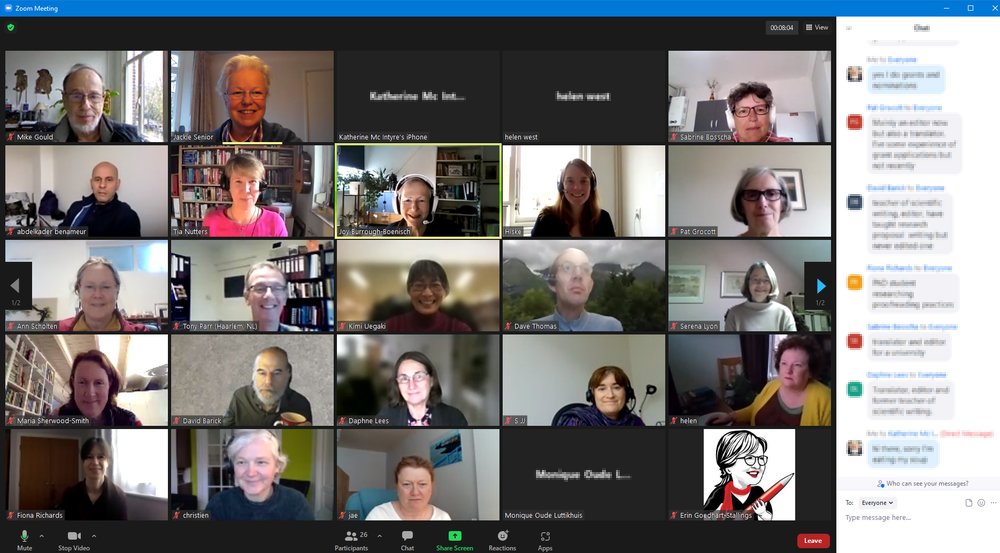
“Write about what makes you stand out in the field.”
“Show why the world should care.”
Tia Nutters and Hiske Feenstra, academic editors for the Talent Development (TD) programme of the University of Groningen (UG), shared these insights and much more at the UniSIG on 26 November. Twenty-seven SENSErs dialled in to learn about how the in-house TD editing team works and the kind of writing advice they give to applicants to increase the chances of their grant proposals getting funded.
The Talent Development programme serves to provide career-long support to academics, from PhD researchers to Nobel Prize winners. The TD team has its own management and support staff, including five editors and two trainers who collaborate on applications for personal grants, ie, NWO Talent Programme (Rubicon, Veni, Vidi, Vici) and European Research Council (ERC Starting, Consolidator, Advanced), as well as nominations for prizes and memberships. The SIG session looked at personal grants.
With the TD editors focusing on proposal texts and the trainers providing training in writing and interview skills and individual coaching, their support spans the entire application process: idea collection > proposal strategy > content (structure, organization, logic, argumentation) > proposal set-up > final proposal (language edit) > rebuttal > interview.
Once a call for proposals has been sent out to the UG faculties, the editing team know they won’t be able to support every application. They therefore set a cap and the faculty funding officers identify the most promising candidates within their faculties for TD support. The team then divide the work and provide two substantive editing rounds, if time allows, followed by a final language edit which is usually done by a second editor. The ideal length of support is 3 to 4 months, but this can be as little as 4 weeks.
Tia and Hiske showed some extracts of proposals they received and the advice they gave. Their approach is most often to shift focus, for example:
| From: | To: |
| Information reporting, ie, a chronological report of what the scientist did. | Looking ahead and telling the reviewers what this proposal means for the world. |
| Being too general in describing the scientific and/or societal impact of the proposed project or being obvious about the project’s “commercial viability”, which could imply making a profit (knowledge utilization section of NWO grant applications). | Explaining how the project will make sure the impact will happen (impact plan) and how the project will track other potential impact the project might yield (eg, a network, a warning mechanism). If relevant, focusing on commerce as a contribution to societal impact rather than an end goal. |
| Writing generic statements, especially in the academic profile, that can apply to anyone. | Avoiding list-like chronologies. Writing statements that make the candidate special. Emphasizing how a result happened or an achievement was made. Looking ahead, eg, what the applicant’s mission and vision are. In other words, selling! |
| Focusing on negative emotions or experiences in rebuttals. | Positive messaging, eg, how they addressed a challenge, what they could do further, what they learned and changed. |
As is often the case, editing is a balance between the time available and the scope of changes to propose – making changes directly, making suggestions for revisions or rewriting an entire paragraph/section.